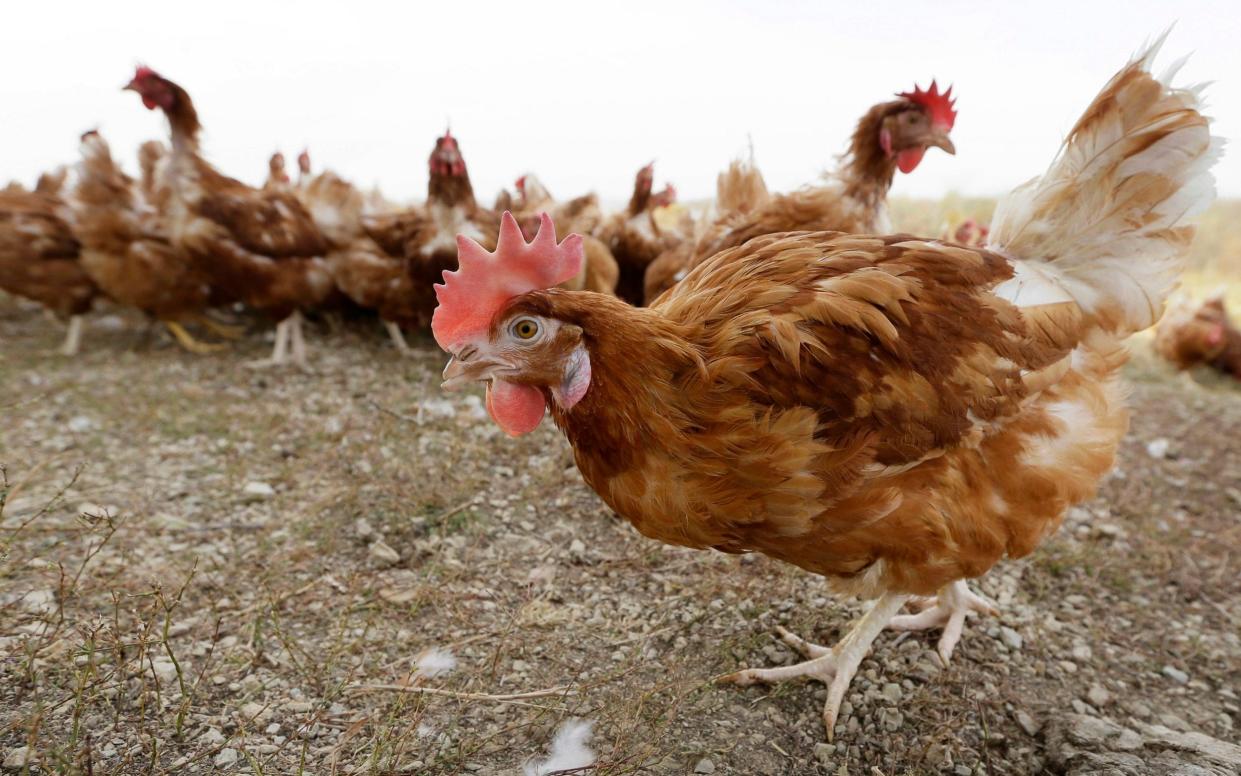The scientific breakthrough that promises to end egg shortages

Chickens genetically edited to prevent bird flu are on the horizon in a breakthrough that could prevent egg and poultry shortages in supermarkets.
Scientists at the Roslin Institute at the University of Edinburgh and Imperial College say they are close to publishing new research on the creation of an avian flu-resistant chicken.
If successful, genetically edited flocks could be available in five to 10 years, say researchers.
In 2019, the team showed it was possible to use the genome-editing technique Crispr to delete a section of chicken DNA that the virus hijacks to replicate.
They found the virus was no longer able to grow inside cells with the genetic change.
Although the work was only carried out in chicken cells, the team has been working to duplicate the results in a live animal.
'Scientific challenge'
Dr Mike McGrew, a group leader at the Roslin Institute, which also produced Dolly the Sheep, said: "We have been working on this project since those first results were published back in 2019 and we have results.
"These are described in a scientific paper that is currently under review in a journal.
"Breeding a chicken that is completely resistant to infection by avian influenza viruses is a scientific challenge and the research into the efficacy of any genetic resistance must be carefully developed.
"If a resistant chicken were developed it would take 5-10 years before the genetic change was introduced into production flocks of chickens."

Avian flu is a major threat to farmed chickens and can lead to entire flocks being culled. In rare instances, certain variations of the virus can infect people and cause serious illness.
Some supermarkets have already started rationing egg supplies as farmers battle the huge outbreak of avian flu in Britain and rising energy and feed costs.
Creating a flu-resistant chicken would be helped by the new Genetic Technology (Precision Breeding) Bill, which aims to relax rules around gene editing and has just had its second reading in the House of Lords.
The legislation would remove EU measures preventing the development and marketing of "precision-bred" plants and animals using techniques that tweak genetic code.
'Game changer'
In a recent parliamentary debate, Lord Trees, the former president of the Royal College of Veterinary Surgeons, said that the Bill could be a "game changer" in tackling animal diseases such as avian flu.
Gene editing is different from genetic modification in that it changes characteristics of an animal or plant by deleting, swapping or repeating genes already present, rather than introducing new ones.
Lord Trees said: "With regard to avian flu, with which we are all now familiar and which is currently causing huge mortality in both wild birds and domestic poultry throughout Europe, it has been possible to gene-edit chicken cells in culture to make them resistant to the avian flu virus.
"This gives hope that poultry with genetic resistance to this pathogen could be developed."
Dr McGrew said the passing of the Bill would help to ensure that genetic editing of animals was done correctly, and that the welfare of animals was prioritised.
"The Genetic Technology Bill will put a process in place, with associated legislation, to regulate the use of gene editing in farmed animals that will allow the application of gene editing technologies, within the framework of existing animal welfare regulations, with a step that specifically reviews any welfare impacts associated with the genetic change," he said.
"This will make it possible for the technology to be used in conjunction with established breeding programmes, while ensuring welfare is considered.
"We expect the process of development of flu resistant chickens to involve many steps and we will engage openly at each step, discussing the data and assessments of risks and benefits."

